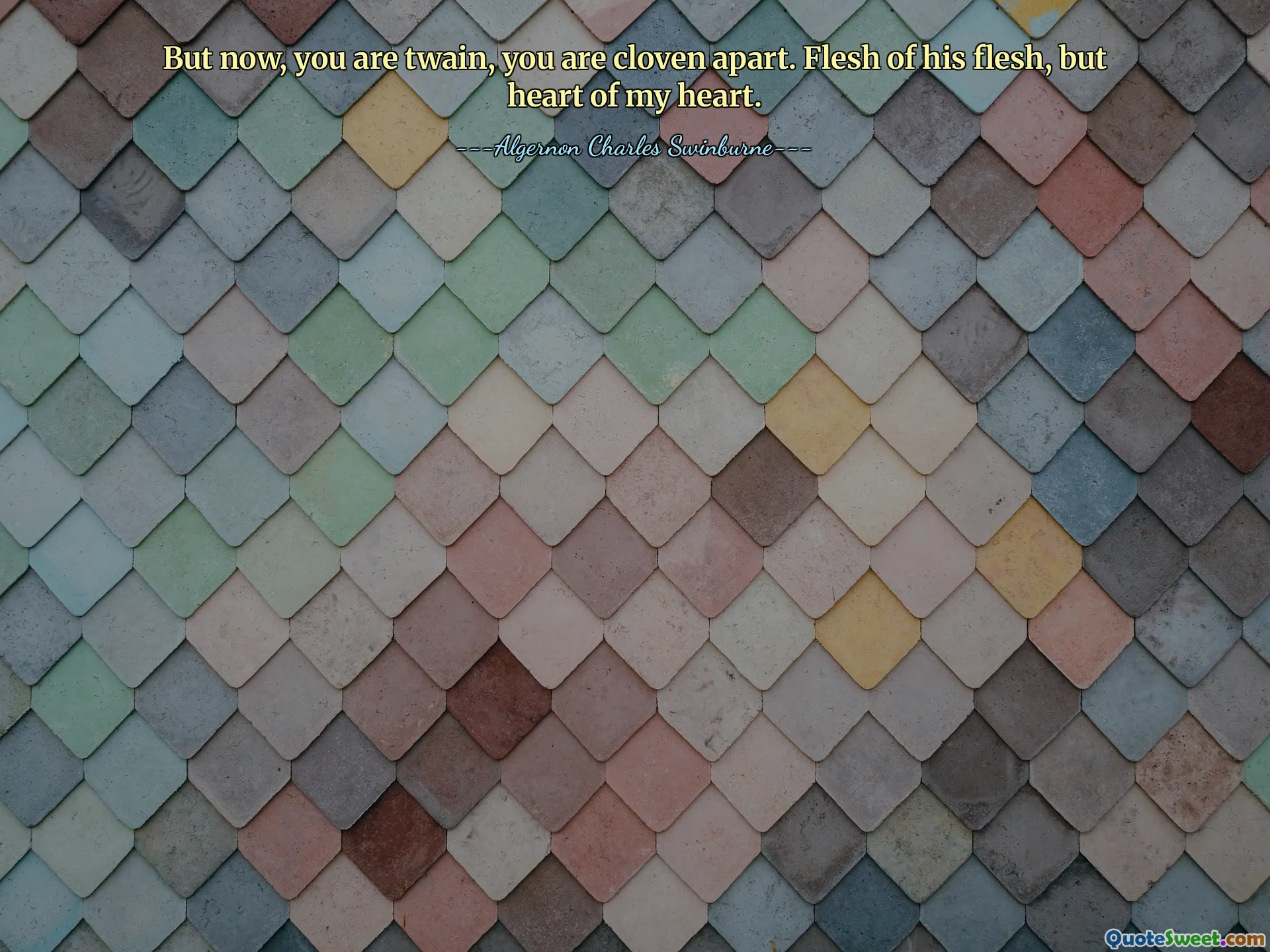
But now, you are twain, you are cloven apart. Flesh of his flesh, but heart of my heart.
This poignant expression explores the deep and often painful divide that can occur between two individuals who were once united by an unbreakable bond. The phrase 'twain' and 'cloven apart' vividly depict separation, not just physically but emotionally and spiritually as well. It prompts reflection on the nature of connection—how intertwined lives and hearts can become to the point where their separation feels as if their very souls are ripped apart. Despite this rift, the emphasis on 'flesh of his flesh, but heart of my heart' reveals an enduring sense of connection at the core. It suggests that, despite external differences or distance, the inner feelings and core essence of the persons involved remain linked. This duality—being physically or emotionally apart while still sharing an underlying unity—resonates deeply within human experience. It evokes feelings of longing, loss, and perhaps hope for reconciliation. The lingering attachment signifies that separation does not necessarily imply total disconnection; it underscores the resilience of love and shared identity. Such insights serve as a reminder of the complexity inherent in relationships, the pain of divergence, and the persistent hope that inner bonds can endure beyond external circumstances. It also calls attention to the profound human need for connection, understanding, and the acknowledgment of our intertwined existences, even when faced with adversity or division.











